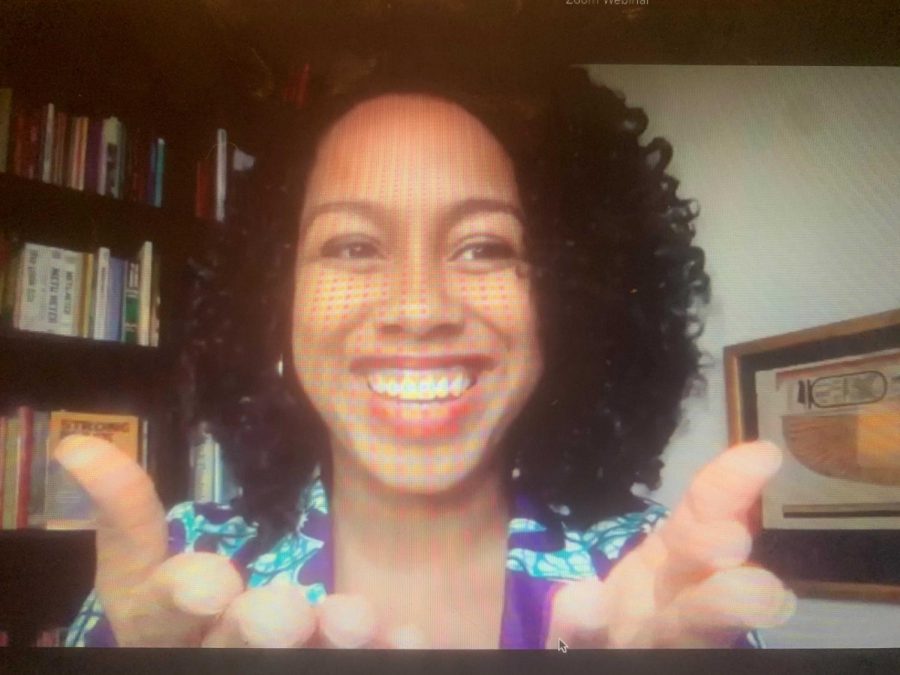Bakersfield College presents Umoja Club’s 3rd Annual Black History Month event through a webinar conference
PsychoHairapist, Dr. Afiya Mbilishaka is pictured teaching students about the history of African hairstyles.
February 18, 2021
Bakersfield College presents Umoja Club’s 3rd Annual Black History Month Conference through a webinar on Friday, Feb 5.
The representatives from Bakersfield Colleges Umoja Club spoke on topics that included Black pride and academic success. Umoja is a statewide organization that empowers young Black students to further their education. The club offers courses that teach students ancestral roots.
The conference opened with a morning ritual known as the West African ritual that was performed by Dr. Paula Parks. Parks explained the components of the ritual that included a table with fabric, water, mineral, fruit, soil, and a plant. The concept of the ritual was to set the foundation for the meeting and to come into the meeting with positive thoughts.
The Umoja club organization is at half of the community colleges statewide and promotes African American culture in classes. The club offers tours to college fairs as well as job opportunities and scholarships. The Umoja English courses that are offered at BC teach African literature. Parks explains how African literature was one of the first written languages and refers to Medu Neter over Hieroglyphics.
There was a performance from the African American group Djelia Kadi, who drummed and danced to West African music during the meeting. The group dressed in African attire and gave gratitude to Parks for choosing them to perform for BC’s Umoja conference.
The guest speaker, Dr. Afiya Mbilishaka, a PsychoHairapist who studies African hair, explained that hair is the entry point of mental health amongst Black people. Mbilishaka explained how society sees beauty and how it is identified with skin tone.
Mbilishaka explained that different African hairstyles originate from tribes where women wore their hair in styles to represent fertility, marriage, power, and wealth. She discussed how many people know the names of different types of popular hairstyles but may not realize that there are meanings to these styles. Mbilishaka also provided the audience with information on how the very popular Bantu Knot hairstyle originates from the Bantu tribe, which is the second largest group in Africa. As well as how African Messiah warriors grow their hair to represent how long they have been a warrior. During slavery, women would braid maps in their hair in hopes to reach freedom, Mbilishaka explained. They would take their braids out to destroy any evidence if they were caught to protect those who have already reached freedom. Willy Morrow’s book “400 Years Without a Comb” was referenced and was encouraged to read to learn more about the history of hair in the Black community during the time of slavery.
Umoja club’s 3rd annual Black History month conference ended with Mbilishaka noting that hair in the black community is a form of self-identity and then went on to answer questions related to her field.





